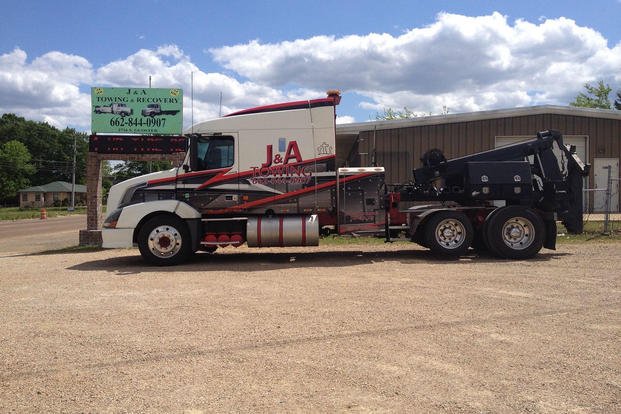A man with a mild cerebral palsy-related gait impairment was refused admittance to an interstate trucking firm's driver-training program. He had a Department of Transportation learner's permit, but company officials feared he could not properly operate a clutch. He sued under the Americans with Disabilities Act (ADA) and was awarded $90,000.
In a separate case, a training school for tractor-trailer drivers was found not to have violated the ADA after rejecting the application of a potential driver with severe hearing loss. A federal district court determined that accommodating such a disability would require a fundamental alteration in the school's program. In addition, the applicant's inability to communicate with his instructor while driving would threaten public safety.
Case law regarding truckers with disabilities is all over the lot. The ADA allows workers with disabilities to seek "reasonable accommodations." Thanks to those accommodations, men and women with disabilities are on America's roads today. But the question for truck drivers often boils down to this: Can you drive safely?
Broad Range of Disabilities
According to Tom Weakley, director of operations for the Owner-Operator Independent Drivers Association, the regulatory Federal Motor Carrier Safety Administration (FMCSA) considers a number of disabilities as potentially affecting safe driving. "Any disability that the FMCSA believes may hinder safe driving is in their domain," he said. If a question is raised -- whether due to loss of limb, insulin-dependent diabetes, a sleep disorder or any other reason -- the driver must prove they can perform his duties safely and effectively.
Whether applying to the FMCSA individually or through their company, a driver with a disability must show they are under a doctor's observation. They also must pass a skill performance evaluation, using the type of truck they normally would drive.
"For a while, the FMCSA didn't approve anyone," Weakley said. "But the diabetes association and other groups protested. People were getting treatment, and they wanted to know what the problem was. They provided logical arguments. It's less stringent now. People are getting CDLs [commercial driver's licenses]."
Yet, Weakley notes, most drivers with heart problems or cardiovascular disease -- where the danger of losing consciousness lurks -- cannot be certified. The FMCSA is also hard on drivers with high blood pressure, which interferes with judgment and reactions. Medications for those ailments may also increase drowsiness.
"I've been on both sides," Weakley said. "I've managed a fleet, and now I represent drivers. If I still worked for a company, to be honest, I'd have second thoughts about who should drive. Just because the FMCSA says it's OK, can a person without a foot drive? If there's an accident, what would a jury think? Would my premiums go up because my insurance company says this guy's a greater risk?" On the other hand, Weakley noted, "Good drivers are hard to find -- and these guys can be good drivers. Companies want to do the right thing. They're just not always sure what that is."
Mental Illness and Driving
Emotional disorders also fall under the ADA's purview. "If you have a psychiatric disability that is likely to interfere with your ability to drive safely, you shouldn't drive a truck," Weakley said. "But I don't know how you determine whether bipolar disorder or depression interferes with driving. And if you don't allow someone to drive because of mental illness, you could be open to an ADA claim."
One solution is to assign drivers with an emotional disability to a non-safety-sensitive desk job. Most drivers resist, Weakley said. "For a lot of them, being on the road is the only thing they know," he said. "They feel they can function perfectly well out there. It's a great job, they're their own boss and the pay is good."
Job Accommodation Network Helps
Anne Hirsh, associate manager of the Job Accommodation Network (JAN) -- a free consulting service working with people with disabilities -- often hears from current and potential truckers. Many have back or repetitive strain injuries. JAN has designed a number of accommodations. For example, a suspension seat and vehicle cushion that reduce vibrations allows drivers with back impairments to sit comfortably for longer periods of time.
A trucker with thoracic outlet syndrome (a nerve disorder characterized by pain, numbness or tingling in the arm) had difficulty driving for long periods and unloading bags at his destination. JAN helped his employer provide a spinner knob to eliminate prolonged grasping of the steering wheel, an anti-vibration seat to cut down on fatigue, a small crane in the back of the trailer and a lightweight aluminum hand truck to help unload.
Other accommodations include a swivel seat and lift so wheelchair users can get in and out of the cab, hearing aids, hearing protection and portable TTY units for drivers with hearing impairments, and a two-way radio allowing a driver with a learning disability to confirm each order with his dock manager.
"When truckers contact us, it shows they really want to be good at their jobs," Hirsh said. "And when companies contact us, it shows their willingness to accommodate drivers."
If you have a disability and need help in ascertaining how your trucking job can better accommodate your needs, contact JAN.
The Next Step: Get Veteran Jobs Tips
Looking for transition and veteran jobs tips? Military.com has you covered. Sign up for a free Military.com membership to have military news, updates and job resources delivered directly to your inbox.











